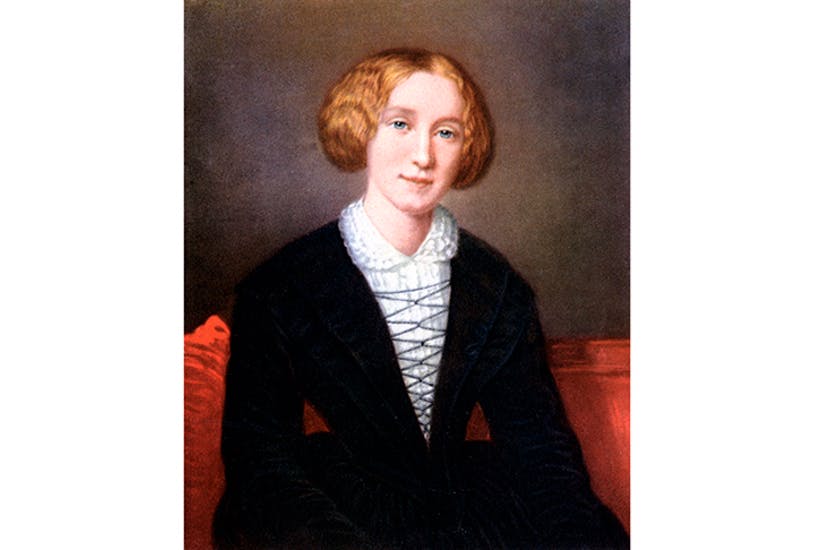George Eliot deserves some praise 200 years after her birth. But the sort of praise she is getting is predictably blinkered by the literary assumptions of our day. She is celebrated as the great fore-runner of the secular feminist literary culture of today, as if she was Margaret Atwood in lace, or Zadie Smith in a bonnet. She is probably the number one pin-up of agnostic literary types, their secular nearly-saint. Woolf scores slightly higher in sexual politics top trumps, but few of us even pretend to enjoy reading her work. So it’s Eliot who is the canonical darling of the bookish lady journalists who are our prime cultural gate-keepers.
I loved her novels as an adolescent. But it does not feel very acceptable to speak about the reasons why I loved them. One reason was that I fell in love with the spirited heroines, being the sort of dreamy old-fashioned oddball who was shy of non-fictional females. But mainly I loved the intense moral idealism at the heart of all her major novels. The plots are centred around the struggles of one or two characters to be…oh dear, I should warn you that there is an embarrassingly non-literary word coming up…good. One could even say that she creates icons of modern virtue – people, young women mostly, who resist selfish impulses and pursue some heroic ideal of selfless charity. This is perhaps the most basic fact about her novels, but it’s not a kosher topic for analysis these days. That sort of moral idealism is seen as sentimental, excessive, perhaps even indecent – judging by the fact that no one wants to talk about it. Let’s speak instead about her powers of characterisation, her democratic interest in minor characters, her open-mindedness, and of course her gender. Let’s discuss anything – her treatment of dogs, maybe – anything but her actual central concern.
Today’s critics do have some interest in her relationship to religion, but it’s a narrow sort of interest, conveniently in tune with their own approach. They explain that she rejected the evangelical Christianity of her upbringing and became a free-thinker, a humanist. They might add that, in a sense, novel-writing became her new faith and they might wheel in a quote about the power of novels to enlarge our sympathy with our fellow creatures.
This is all true enough, but it misses a key point. Eliot was a post-Christian writer in a very specific sense. She wanted to preserve the moral idealism of Christianity in a world of waning belief. She hoped that people would find a post-religious way of striving for the moral perfectionism that Christianity teaches. This has little in common with today’s dominant secularism, which vaguely assumes that we are naturally good enough, and so should just express who we are.
Eliot would see this as a horrifically slack worldview – where is the ideal to spur people to moral heroism, where is the nurturing of the frail impulse to devote oneself absolutely to the good?
In a sense, it is misleading to see her as an agnostic, for it lumps her with the moral shruggery of our day, and the assumption that morality is about public rules, not an inner discipline, an inner devotion.
It’s more accurate to call her a Christian who couldn’t believe in the doctrine. For this was her core purpose in life – not to tell stories that empowered people, or helped them explore their identity, or challenged oppressive structures, but to tell stories that could keep alive the flame of moral perfectionism that she saw as the essence of Christianity. But don’t expect this angle to be explored by chatty bookish types this season.







Comments